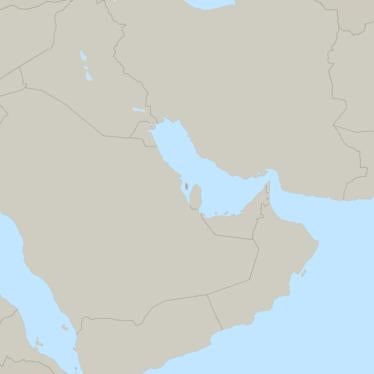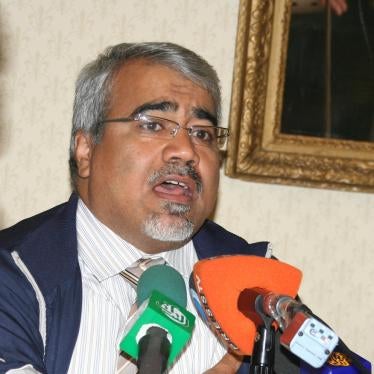(Beirut) – Three members of a cultural society in Bahrain are scheduled to go to trial on February 28, 2023, for merely exercising their right to free expression and belief, Human Rights Watch said today. Bahraini authorities should immediately drop all charges against the men and halt inflammatory public comments condemning the society on religious grounds.
The defendants, Jalal al-Qassab, Redha Rajab, and Mohamed Rajab, are members of Al-Tajdeed Society, a group that advocates open discussion and questioning about religion and Islamic jurisprudence. The Cyber Crime Directorate and Social Development Ministry brought the case. Prosecutors are charging the defendants under articles 309 and 310 of the Bahraini penal code, which criminalizes expression that “ridicules” any of Bahrain’s “recognized religious texts.” The trial begins a week before Bahrain hosts the Inter-Parliamentary Union Assembly, the theme of which is “Promoting peaceful coexistence and inclusive societies: Fighting intolerance.”
“No one should ever be on trial merely for peacefully expressing their own views about religion,” said Niku Jafarnia, Bahrain and Yemen researcher at Human Rights Watch. “By holding this trial merely a week before hosting the Inter-Parliamentary Union Assembly, Bahraini authorities are showing that they have no intention of allowing coexistence and an inclusive society if that means allowing debate on controversial subjects.”
Human Rights Watch spoke with three people linked to the case, all of whom asked to remain anonymous for fear of reprisals. One of them, a member of Al-Tajdeed Society, said that the case was “[A]ll about freedom of speech, freedom of expression.” He said: “We are a cultural society, we are a research society, and we are researching the basics of our culture… We simply have different views, and we are receiving all this pressure to stop our broadcasting and our studies.”
In a statement posted online, the public prosecutor contended that the defendants have violated the freedom of belief due to their “narratives and ideas.” Prosecution on these grounds contradicts international human rights law, particularly under article 19 of the Universal Declaration of Human Rights, which provides for freedom of opinion and expression.
The trials are taking place against the backdrop of the Bahraini government’s attempts to whitewash its human rights abuses and display an image of reform and tolerance internationally, including by hosting the Inter-Parliamentary Union Assembly. Despite these public promotions of inclusivity, one person Human Rights Watch interviewed said, “Al-Tajdeed Society has become the target of widespread hate speech and incitement from powerful clergymen in the country, and the government has turned a blind eye.”
The persecution of Al-Tajdeed is an example of the Bahraini government’s widespread violations of the rights to freedom of expression, assembly, and association, Human Rights Watch said. The government has systematically excluded and repressed political opposition and activists, including through the detention, torture, and forced exile of former opposition leaders and human rights defenders, with laws that keep political opponents from running for parliament seats or even serving on the boards of governors of civic organizations, and by barring independent media.
A number of activists, bloggers, and human rights defenders continue to be imprisoned for exercising their right to freedom of expression during the 2011 pro-democracy protests, prompting the European Parliament to call on the Bahraini government to release them. This includes Abdulhadi Al-Khawaja and Dr. Abduljalil Al-Singace, who have both been denied critical health care. According to his family, Al-Khawaja’s recent inadequate medical eye check-up revealed that his glaucoma has worsened, which carries the risk of blindness if not treated appropriately.
“Despite putting on an appearance of religious and political tolerance in the country, Bahraini authorities continue to target and suppress speech that does not conform to their own views,” Jafarnia said. “Al-Tajdeed members are being persecuted for doing nothing other than researching and questioning religious texts and speaking openly about their beliefs. Bahraini authorities should immediately drop the charges against these men.”








